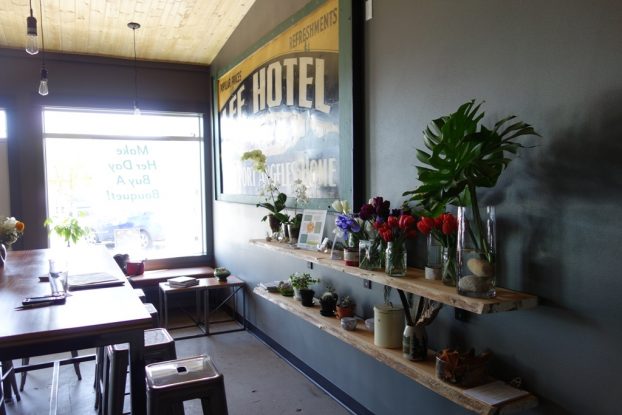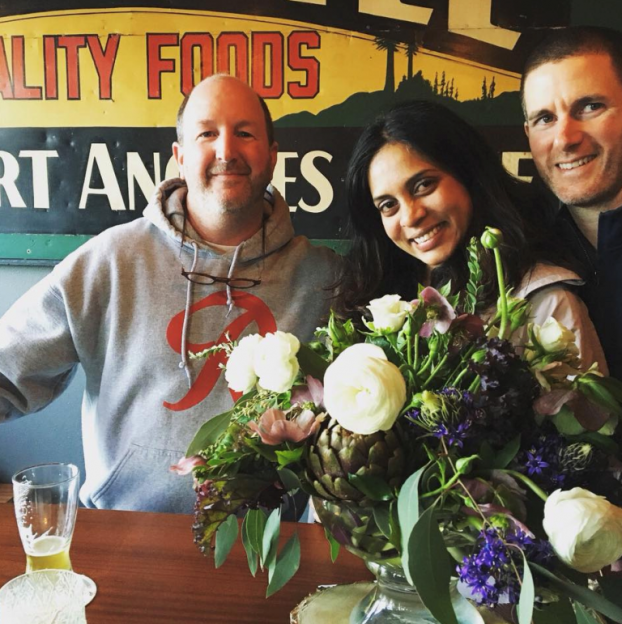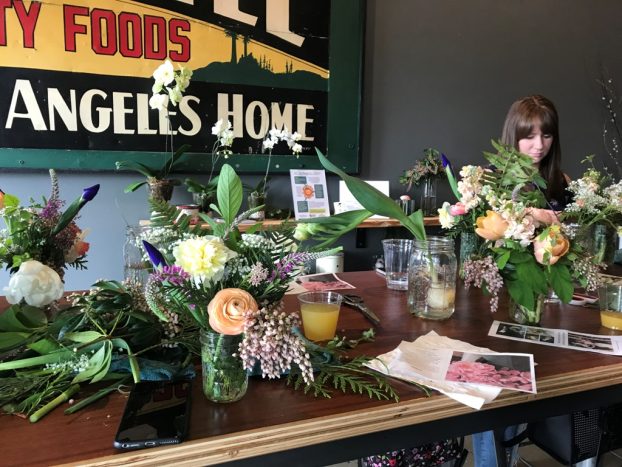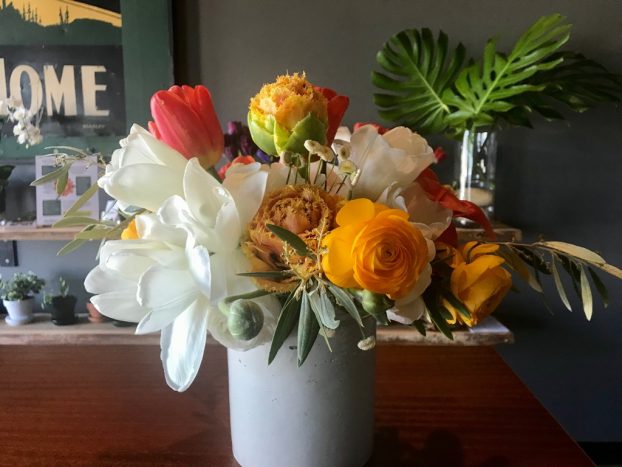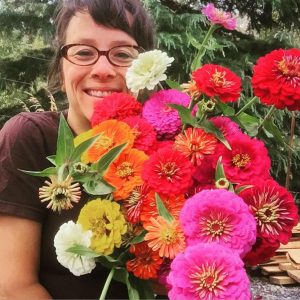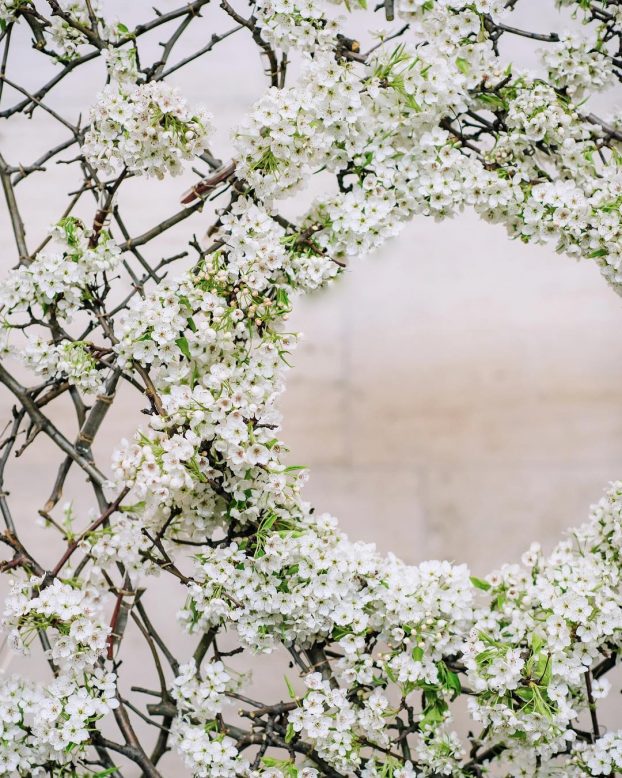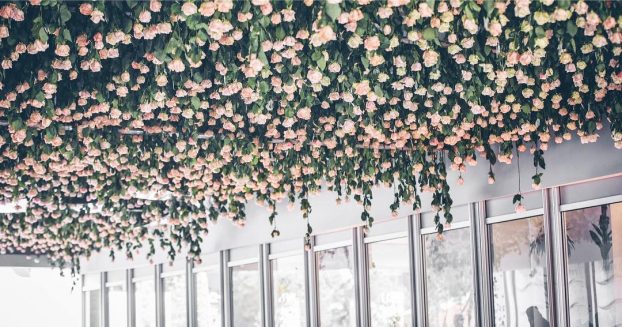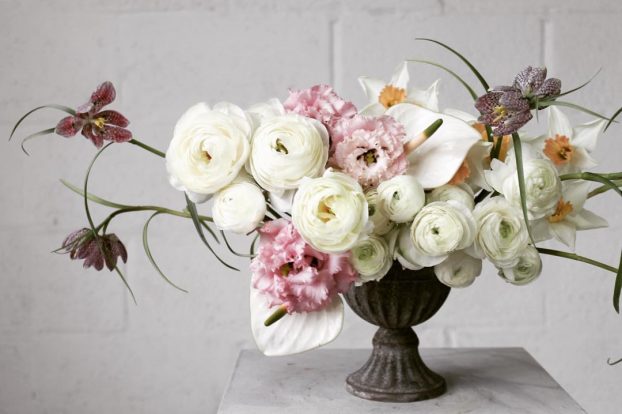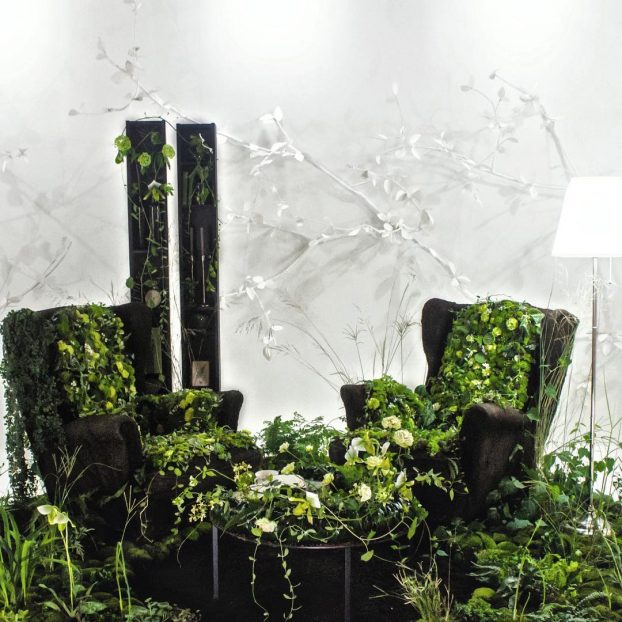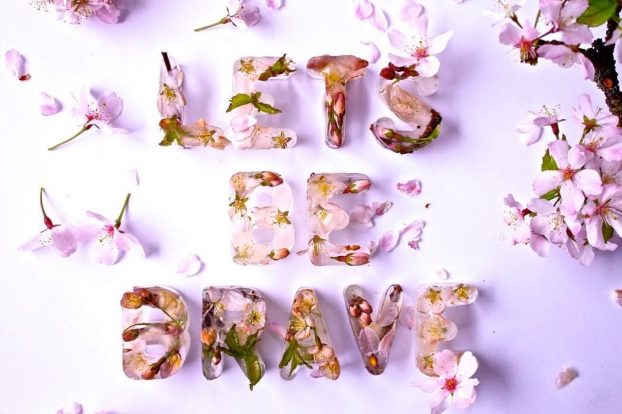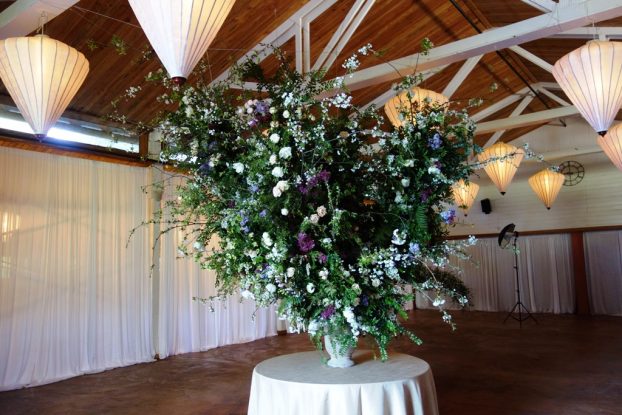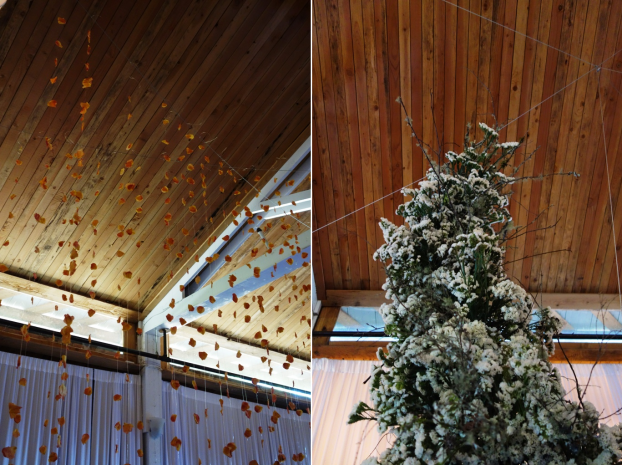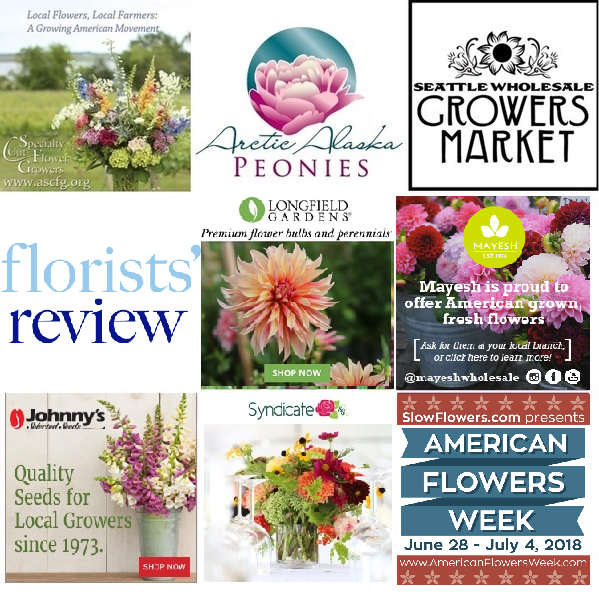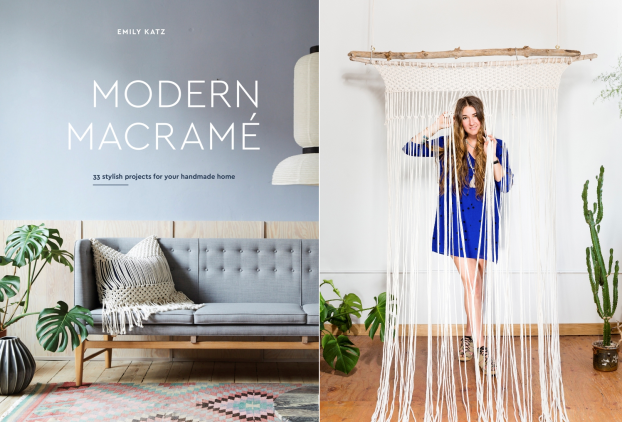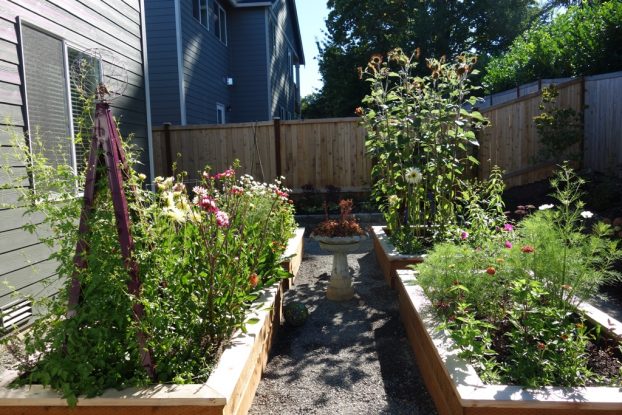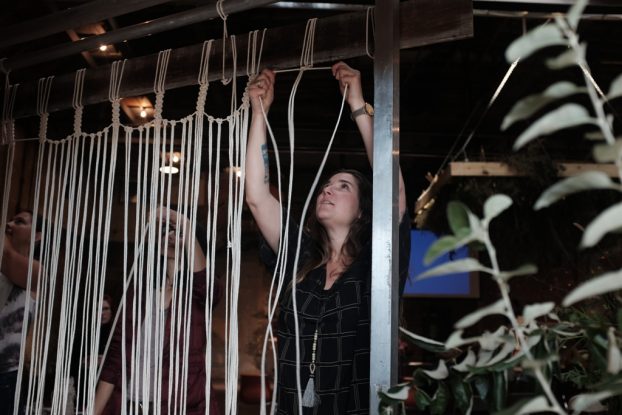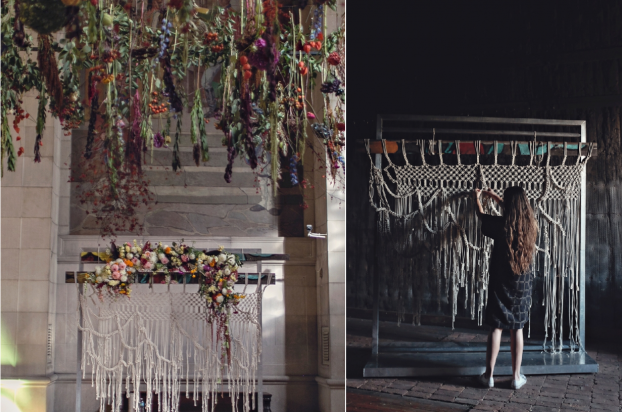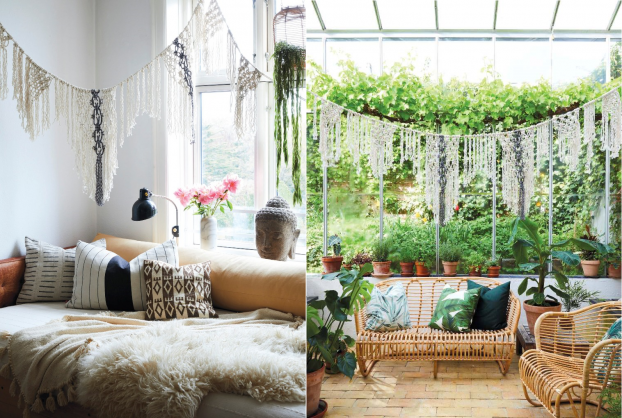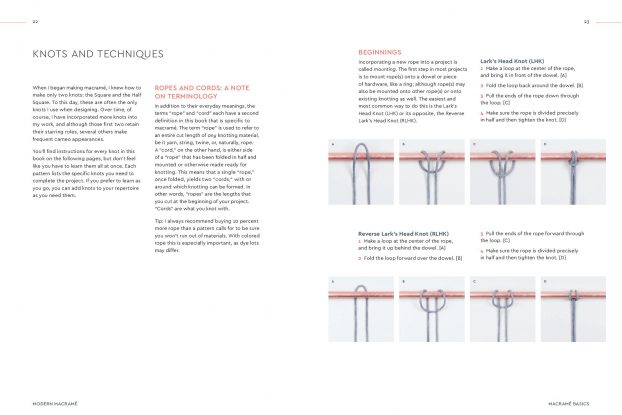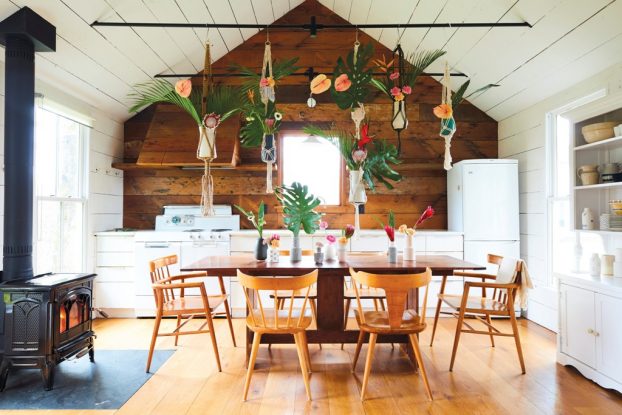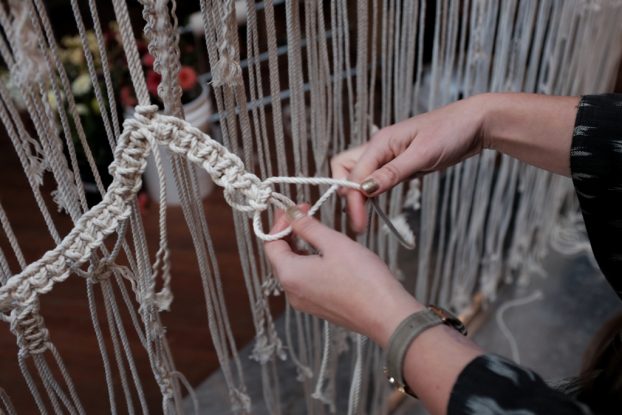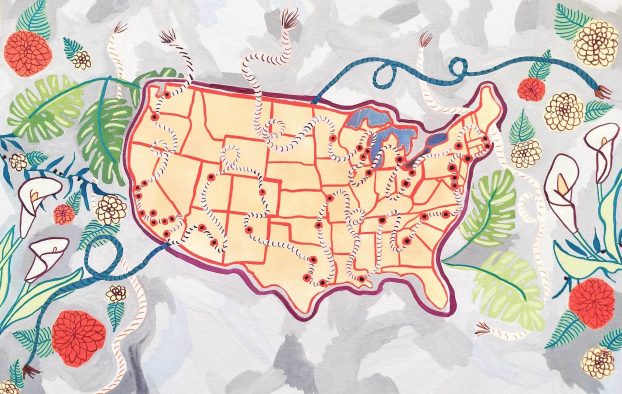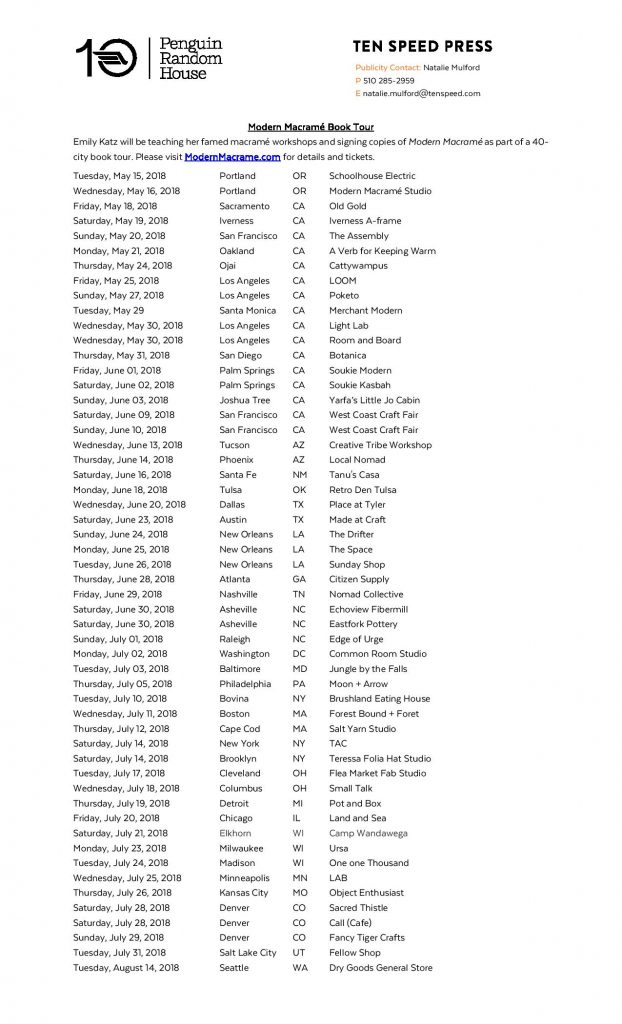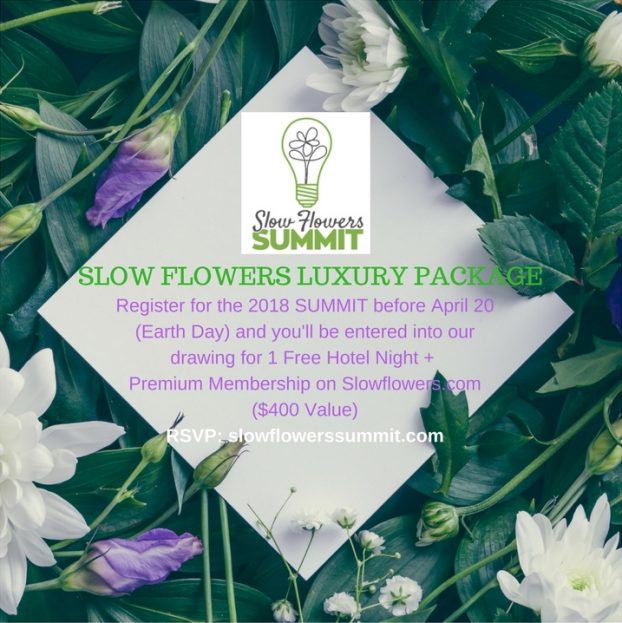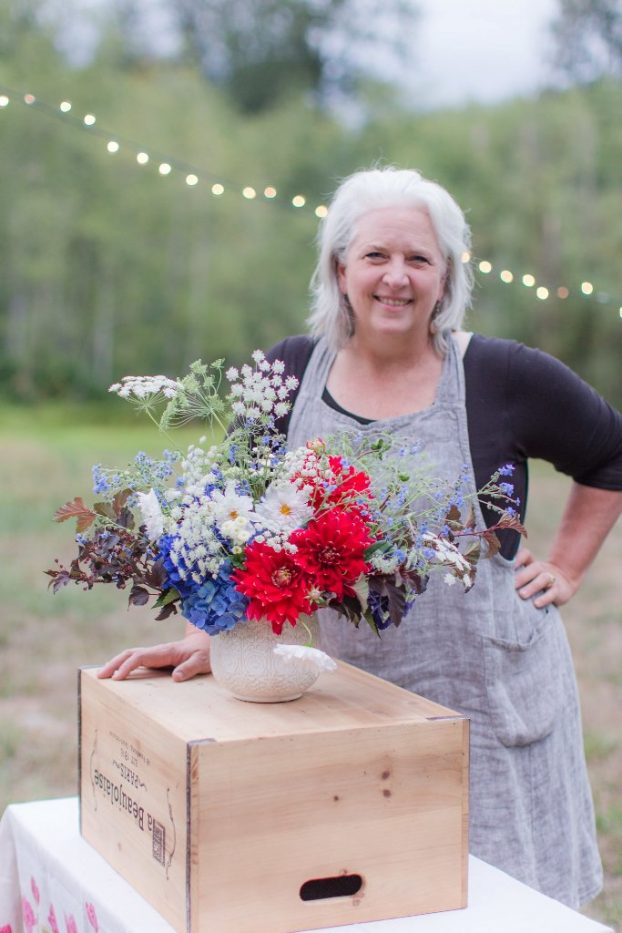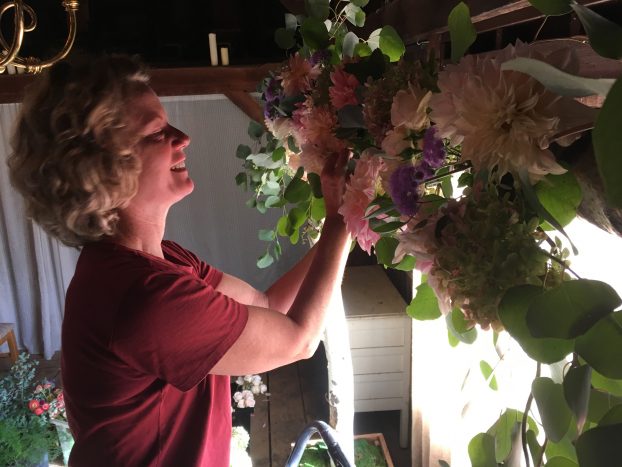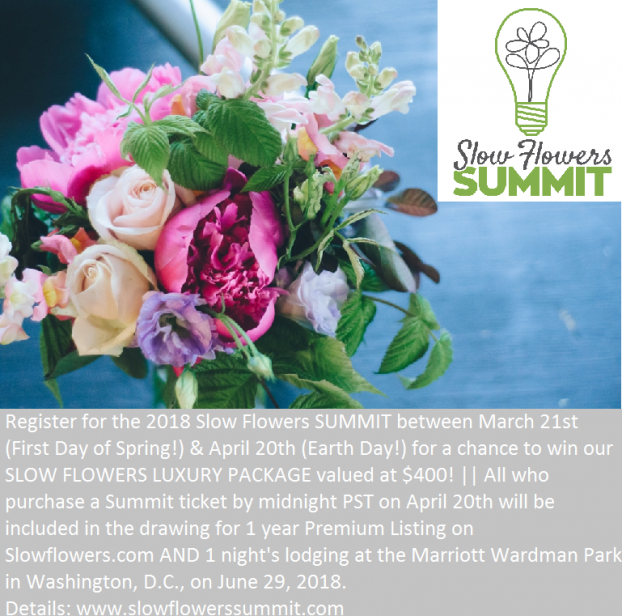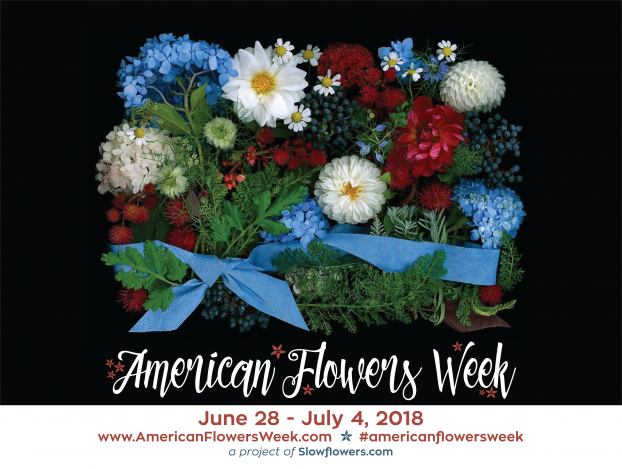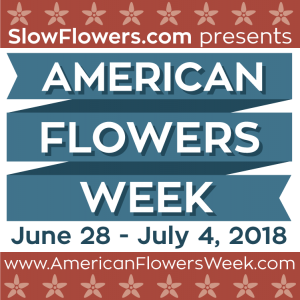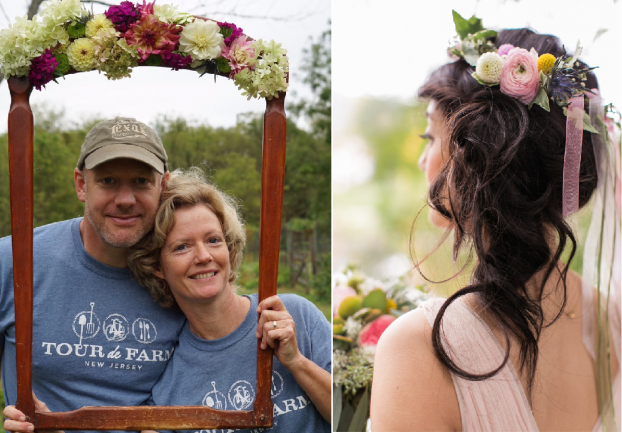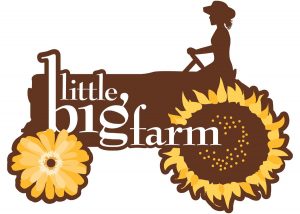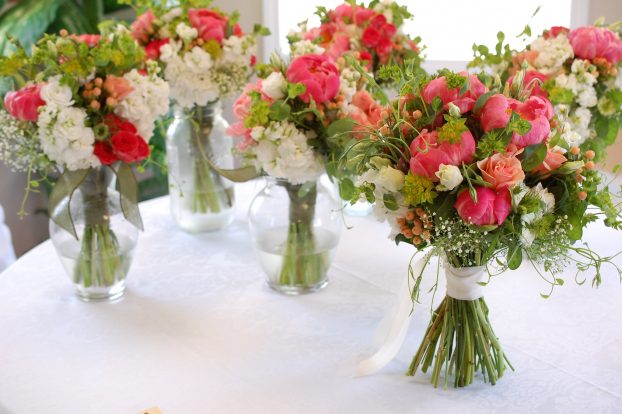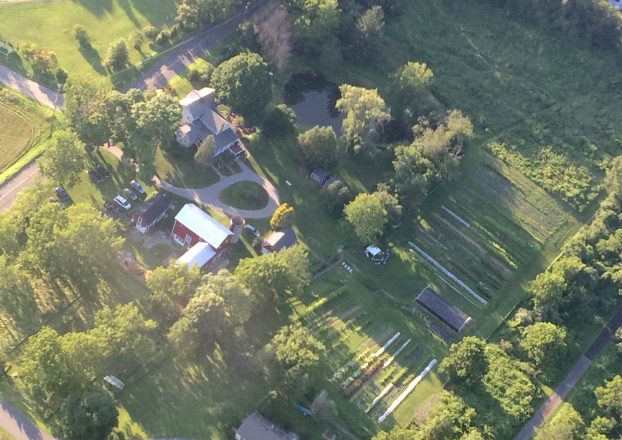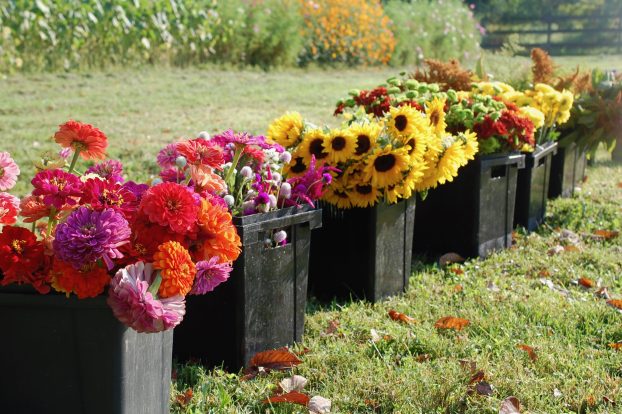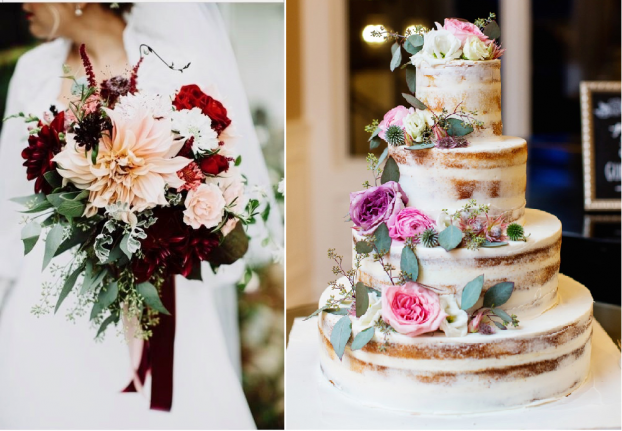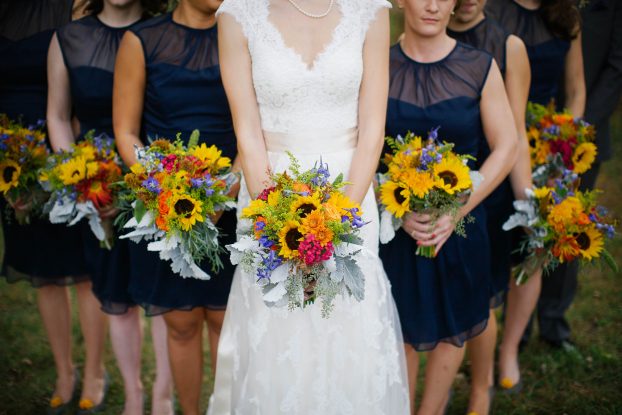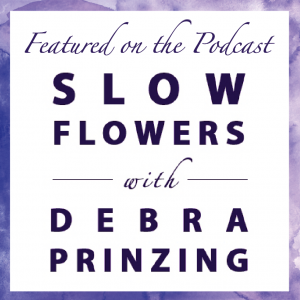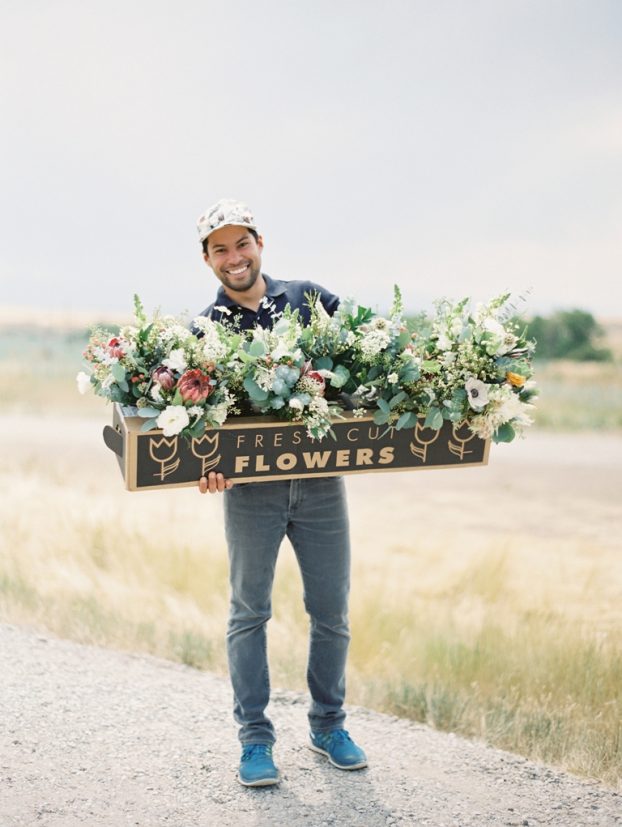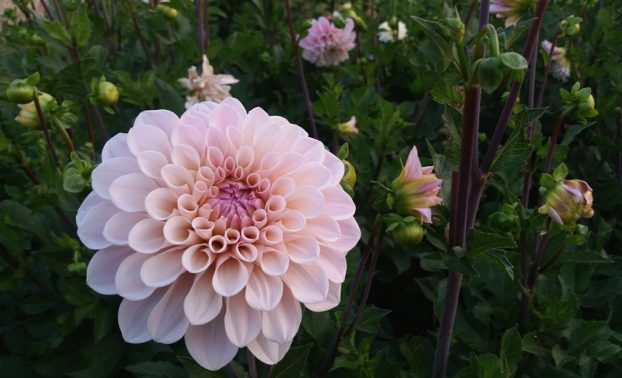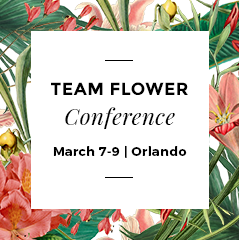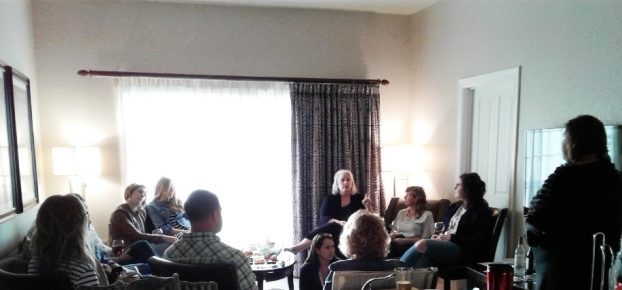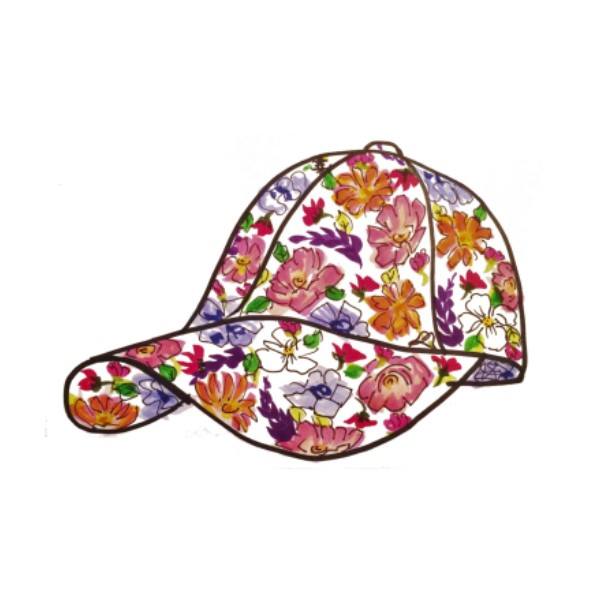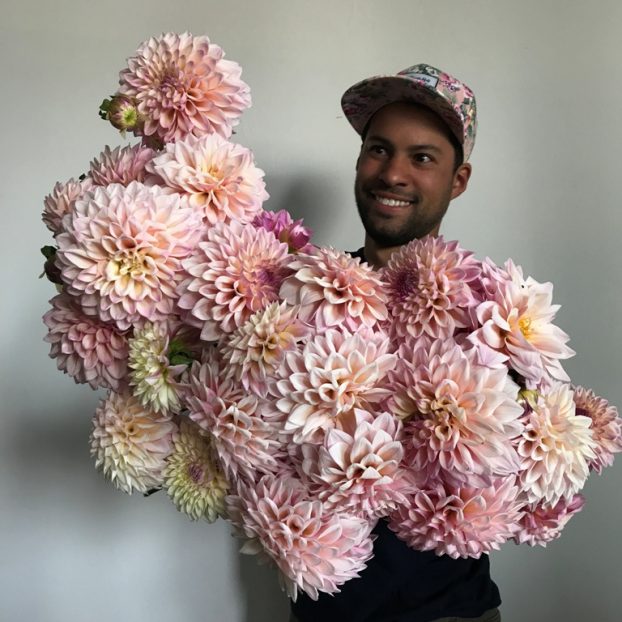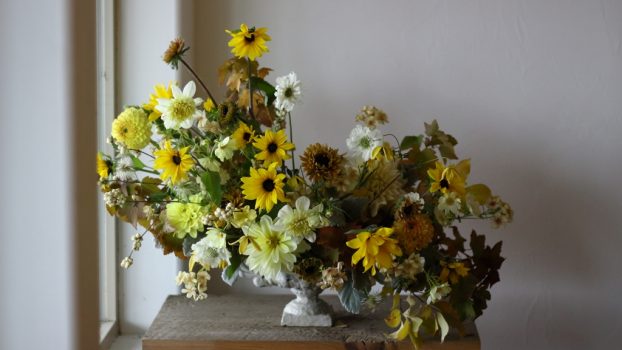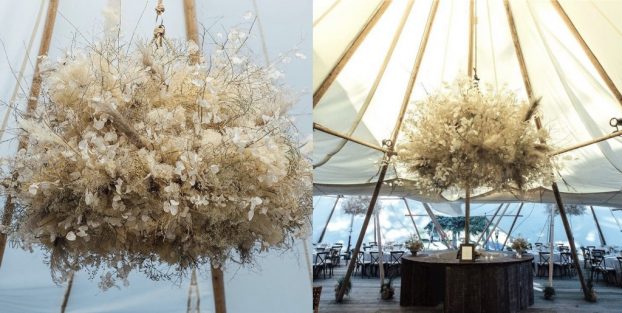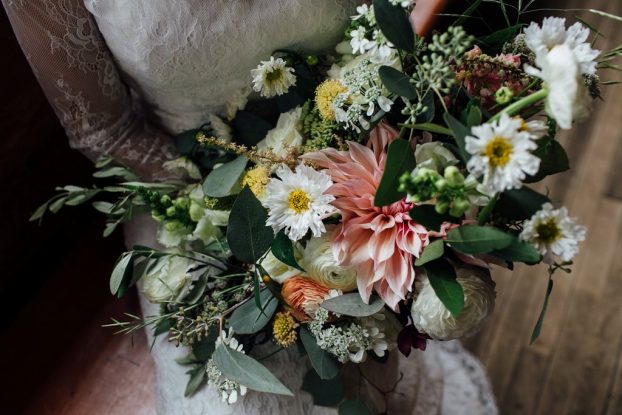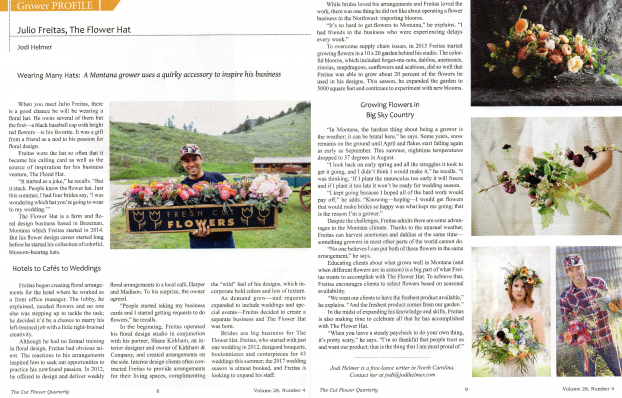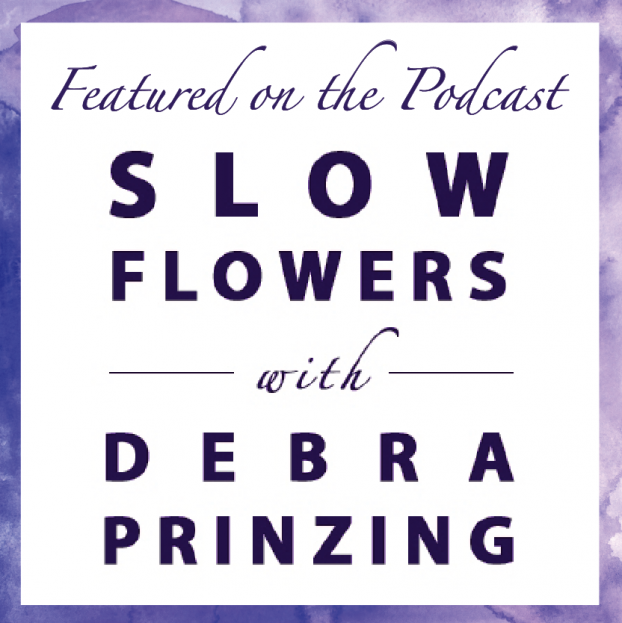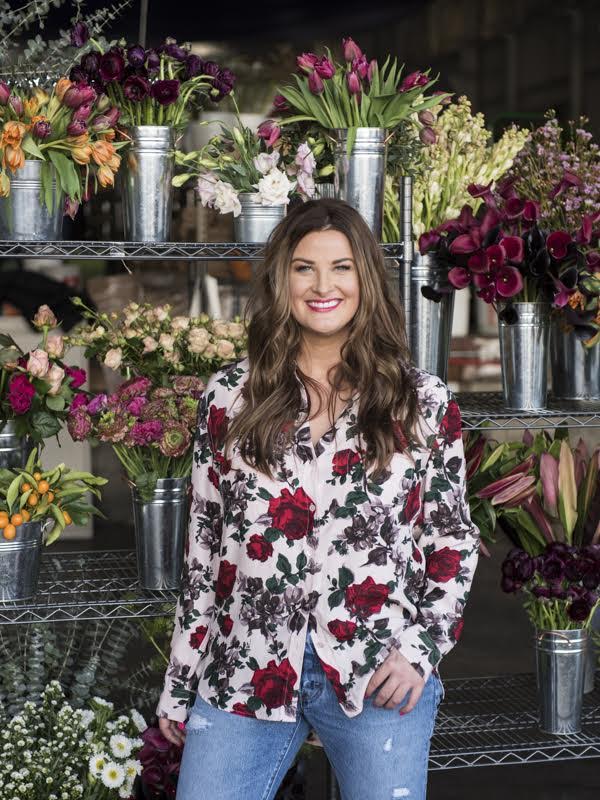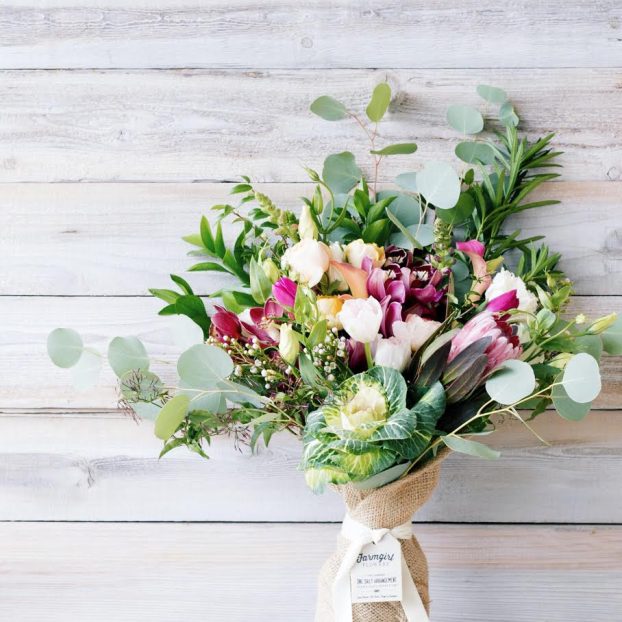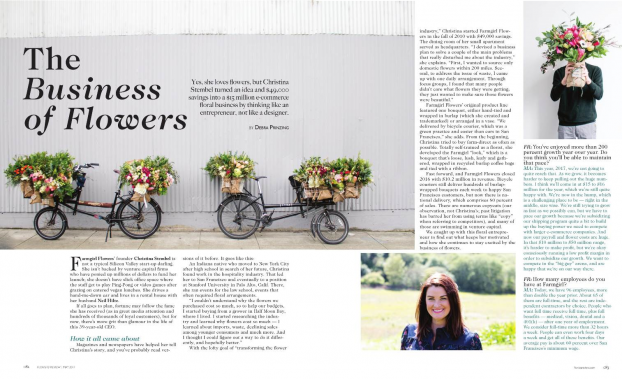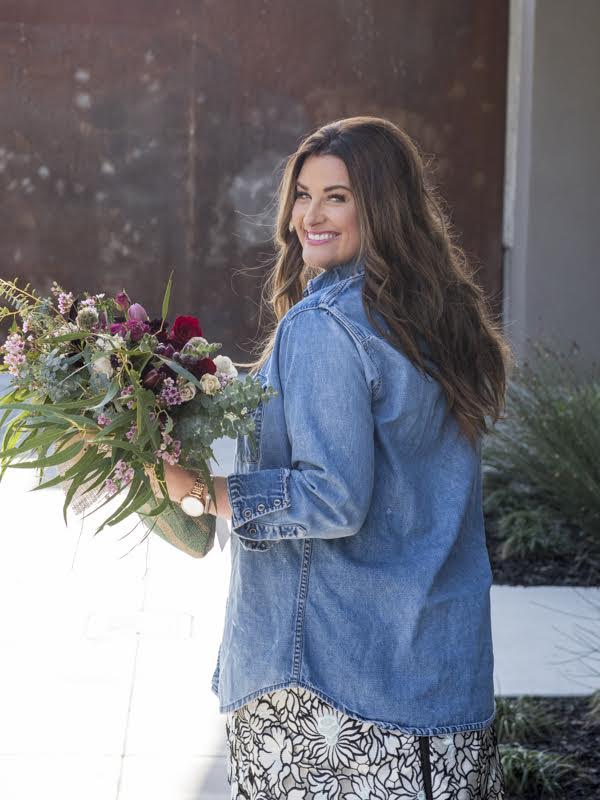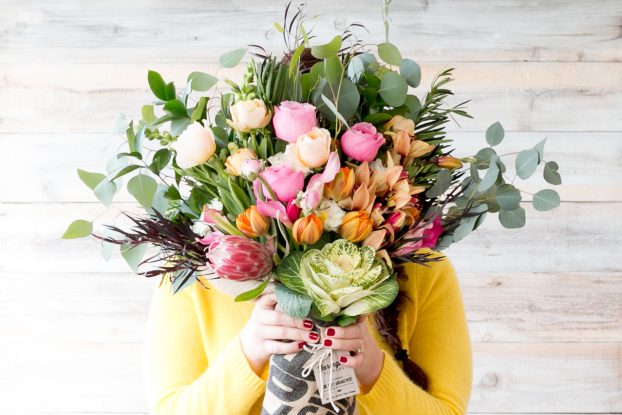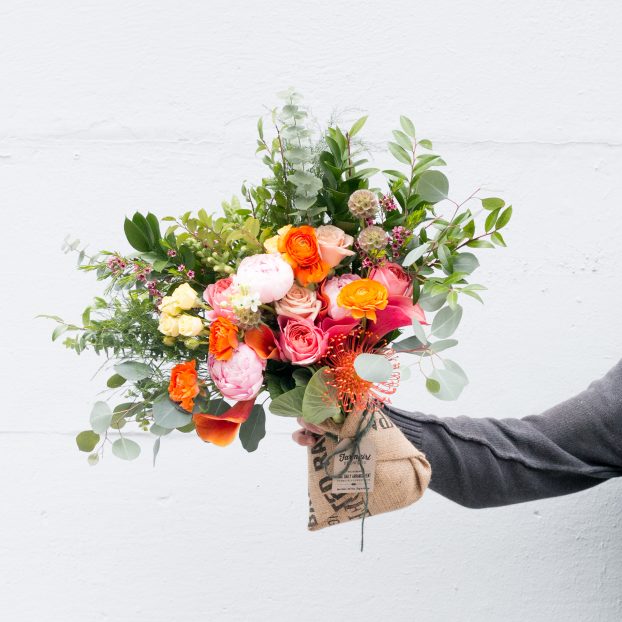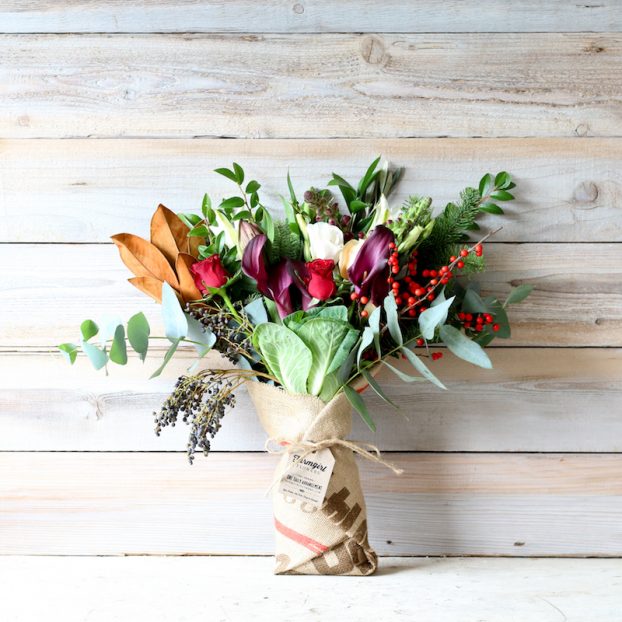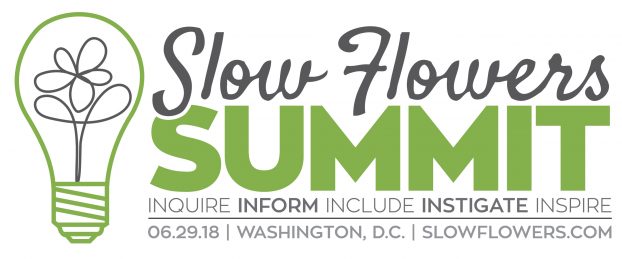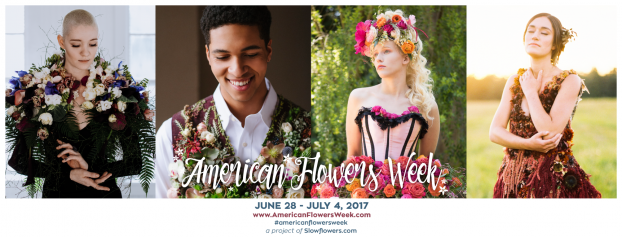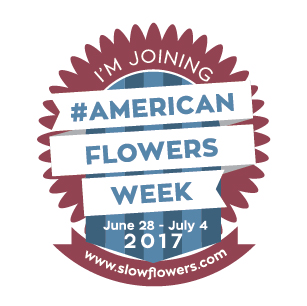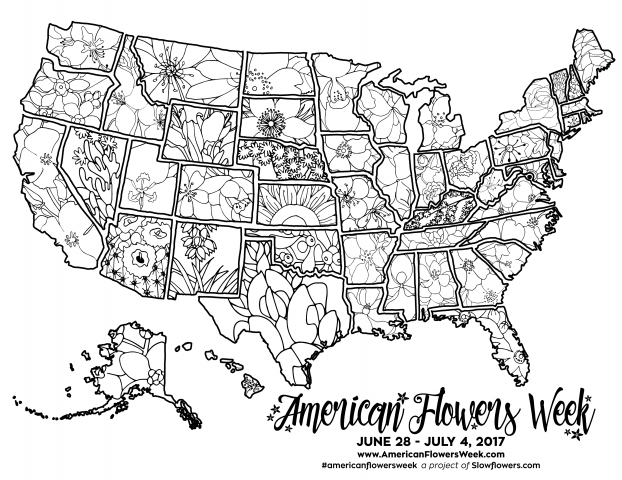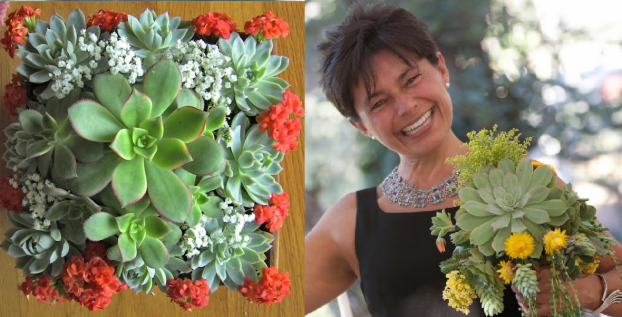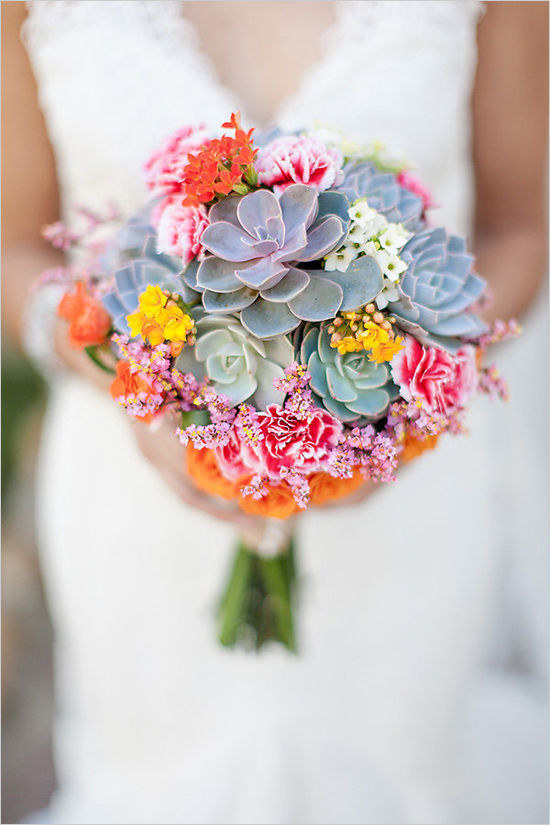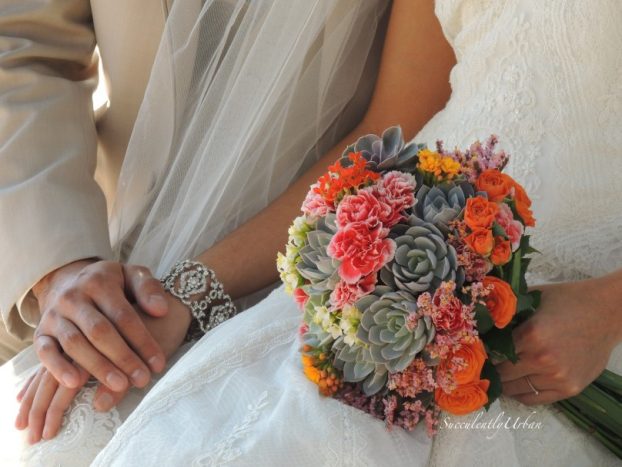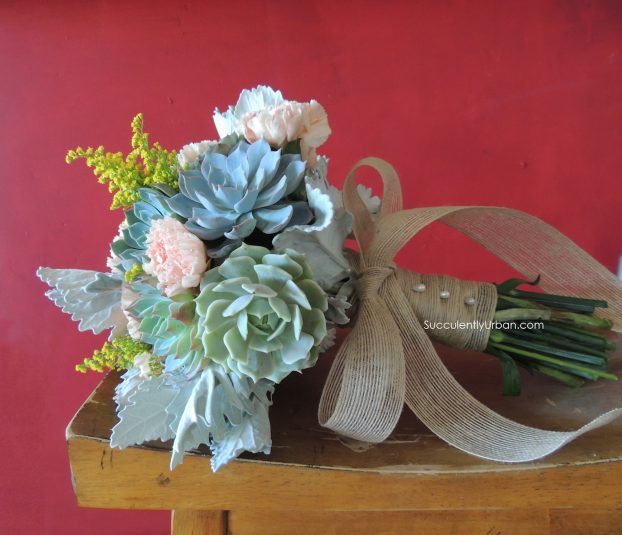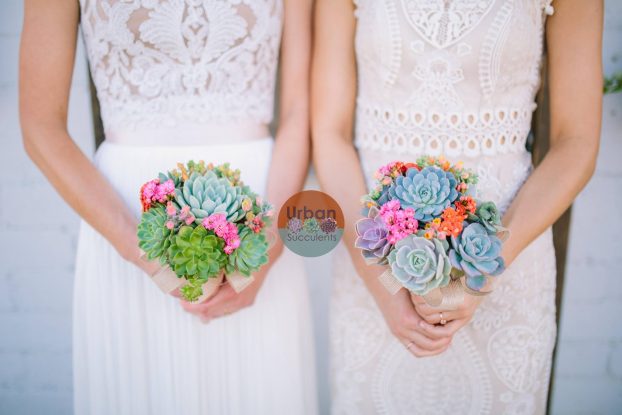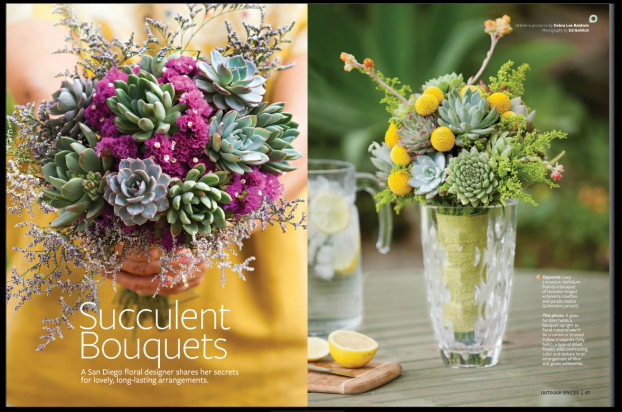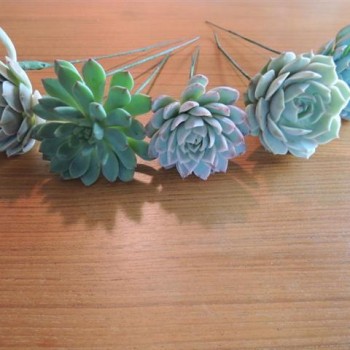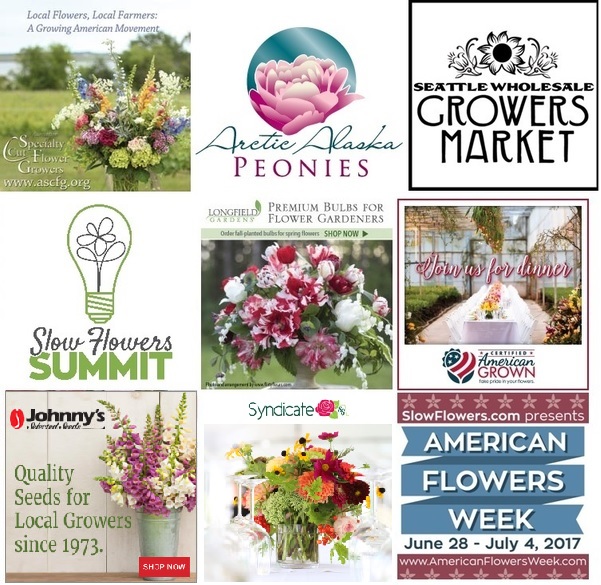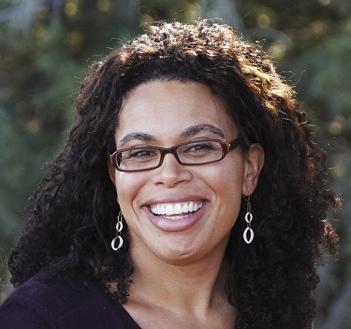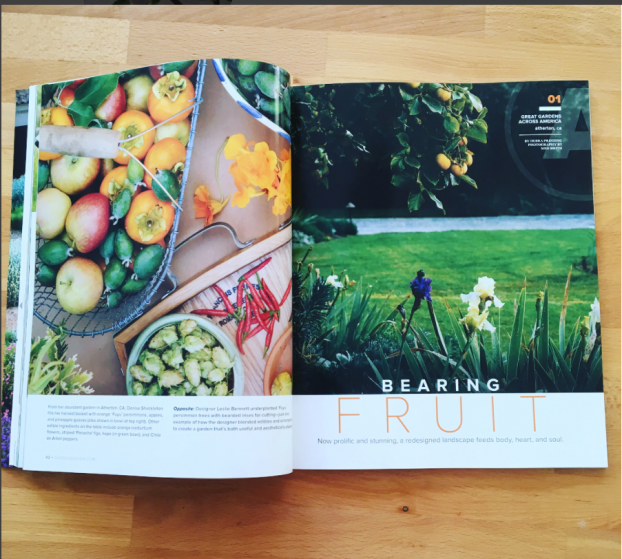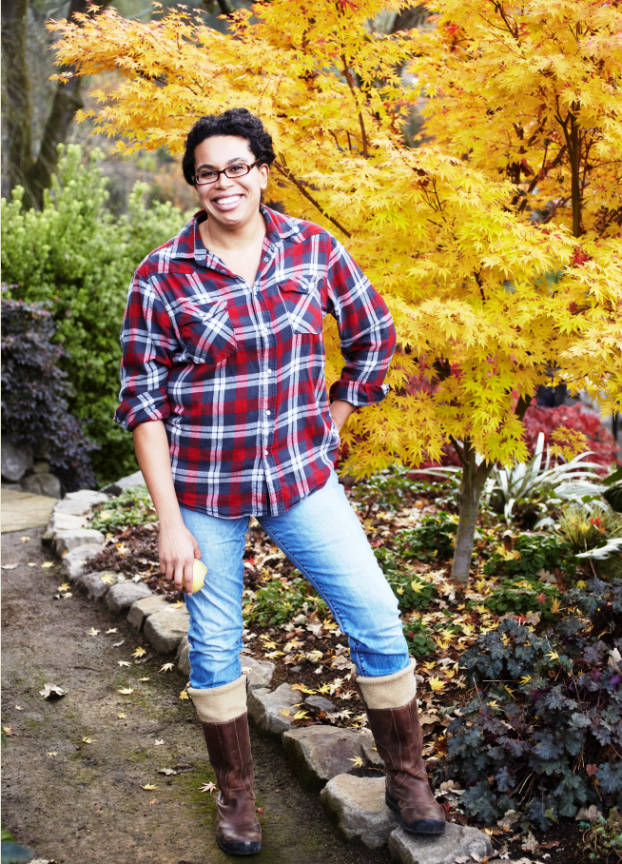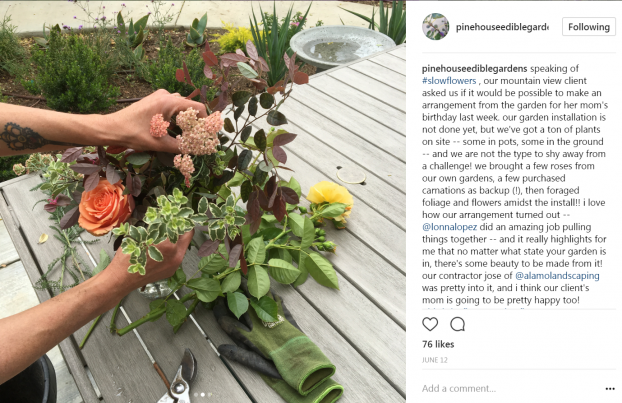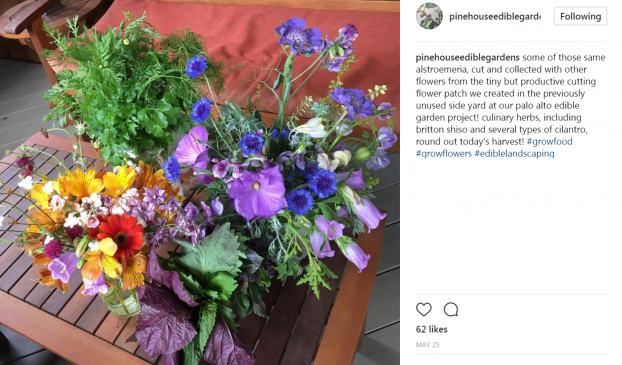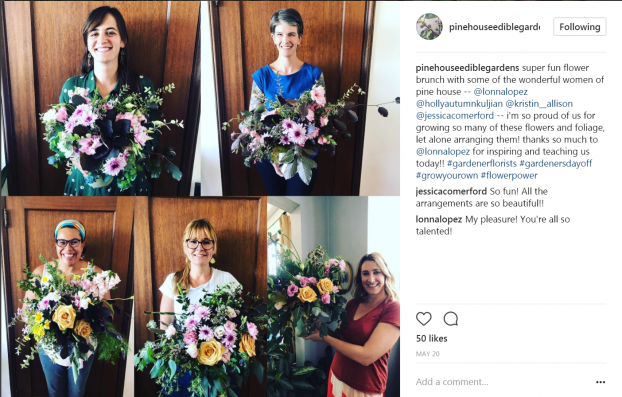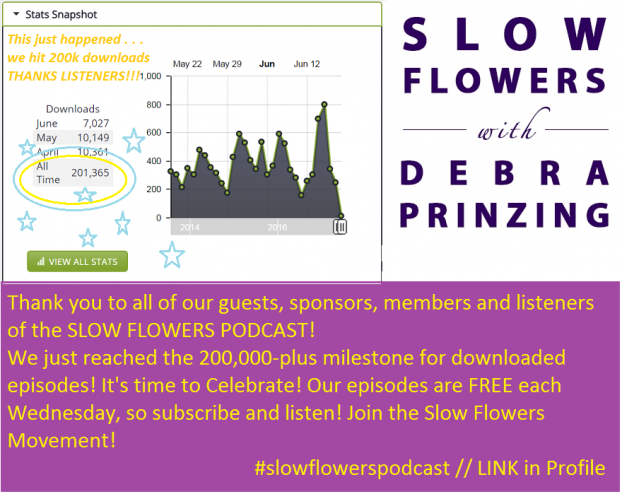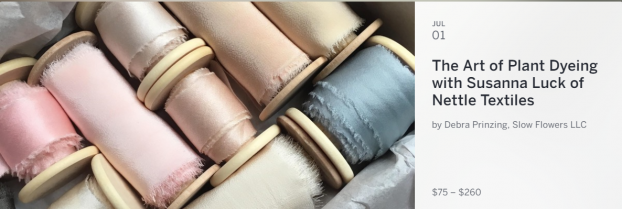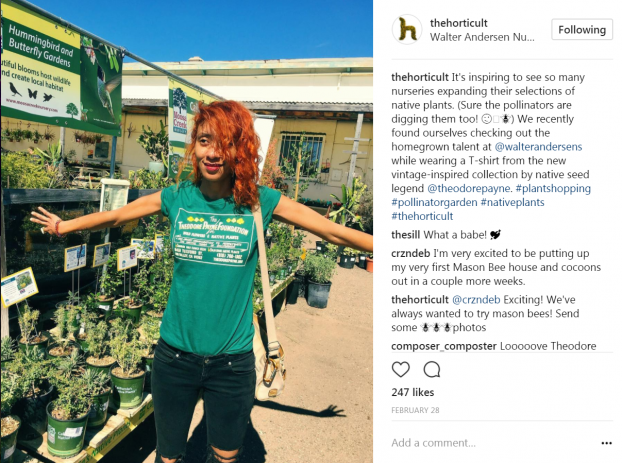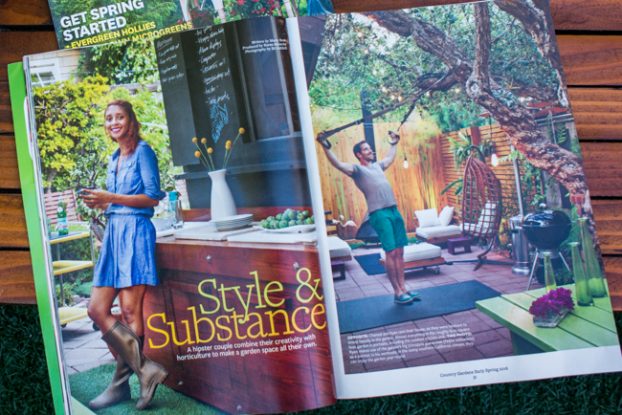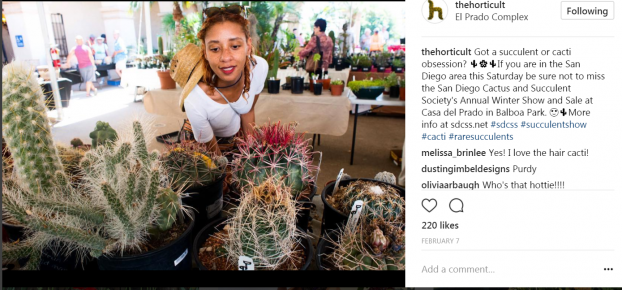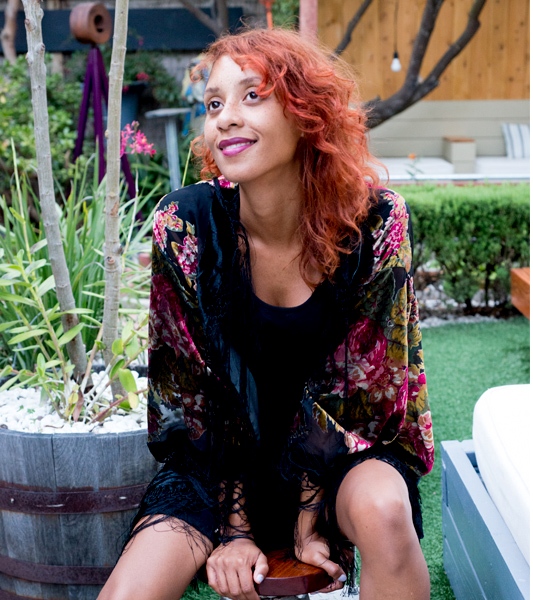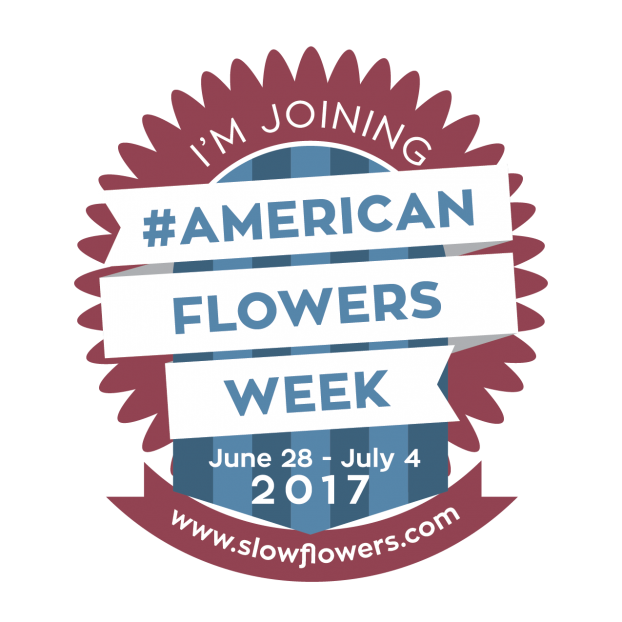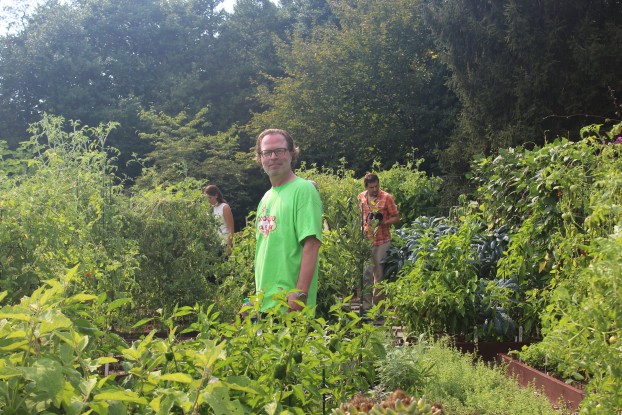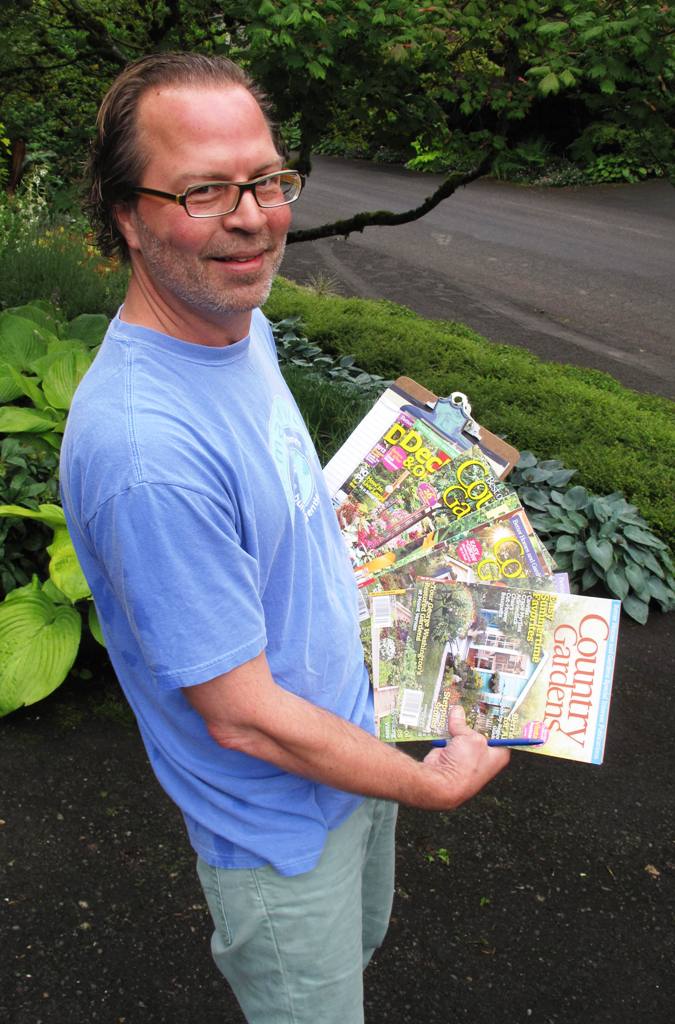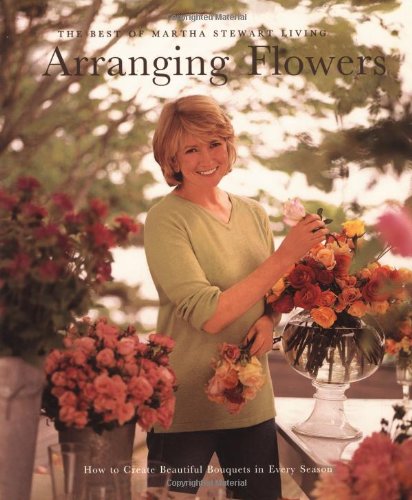Podcast: Play in new window | Download
Subscribe: Apple Podcasts | Podcast Index | RSS | More
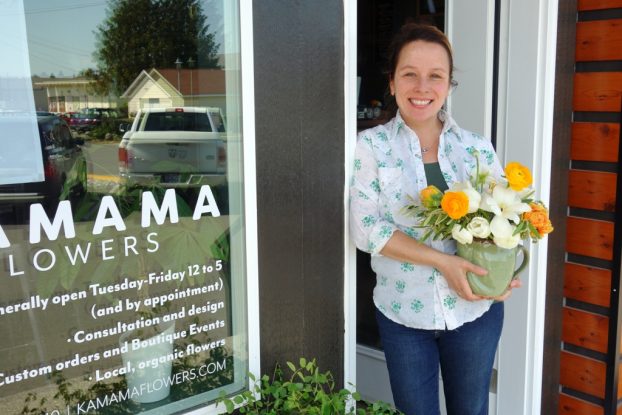
Today’s guest is April Lemly of Kamama Flowers, pictured in the doorway of her new “Flower Bar,” co-located with Peninsula Taproom in Sequim, Washington.
Last week I announced the winner of the Slow Flowers Summit’s ticket sales promotion called the Slow Flowers Luxury Package. Yesterday, on May 1st, I announced the next ticket sales promotion — and I’d love to share it with you here.
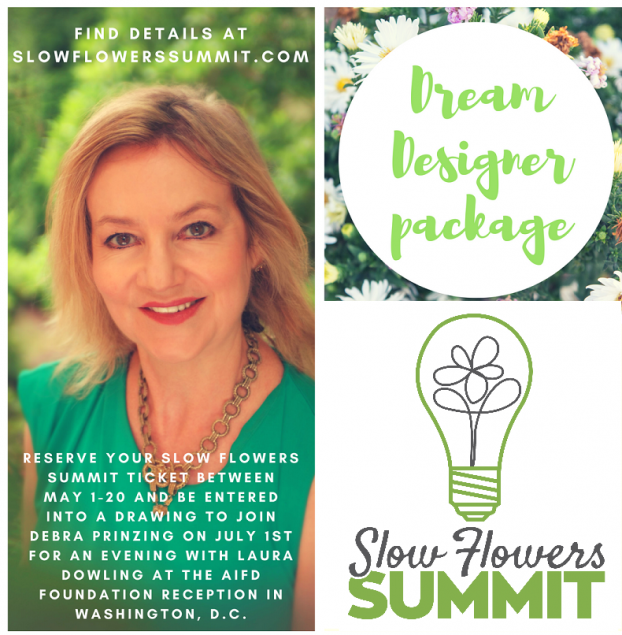
Now through Sunday, May 20th, all new registrants for the Slow Flowers Summit will be entered into a drawing for one Dream Designer Package — to join me on Sunday evening, July 1st at an exclusive gathering with Laura Dowling, author and former White House Florist. This private event benefits the AIFD Foundation and I’m going to bring one of you with me to attend and enjoy a dazzling and unforgettable evening.
So if you’ve been thinking about attending the Slow Flowers Summit, this promotion might just be your incentive — check out details and find registration information here. It promises to be a fantastic day of networking, inspiration and personal growth. I can’t wait to see you there!
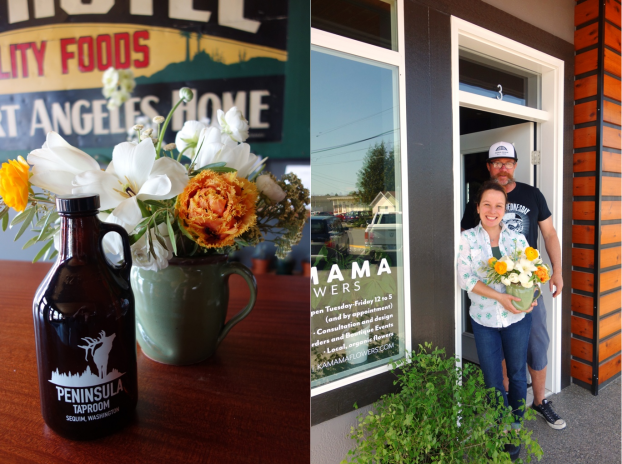
Flowers and Beer (left), including the signature growler with the Peninsula Taproom logo; April and Sean in the doorway (right).
I’m so pleased to share today’s conversation with April Lemly of Kamama Flowers. Through Slow Flowers, we’ve reconnected and renewed a 20-year friendship that began at Seattle Infant Development Center where April was a pre-K teacher and my son Benjamin was one of her 5-year-old students. It is so fascinating to see the journey she has taken from teaching to graphic design and small business consulting to a love of flower growing and floral design. So this is a special episode in so many ways.
When April and I first reconnected in 2014, she and her partner Sean O’Neill were living in Portland, both engaged in other professions. Last summer, they up and moved to Agnew, Washington on the Olympic Peninsula, about halfway between Port Angeles and Sequim. They bought land, allowing April for the first time to expand from an urban backyard flower grower to small-scale agriculture. They also opened Peninsula Taproom, which is a fantastic place for connoisseurs of regional beer, wine, cider and food — a true gathering place for locals and tourists, with a fun vibe.
As you’ll hear in our conversation, April has found a way to weave flowers into the culture at Peninsula Taproom. In fact, she has just opened a connected flower studio-classroom-retail space, shared with the taproom. So by day, it’s all about flowers. By night, it’s still all about flowers, but the Taproom patrons are invited to sit at the large work table, including being able to reserve it for groups. And no surprise, many of them pick up a bouquet or bunch of blooms to take home along with a growler of ale.
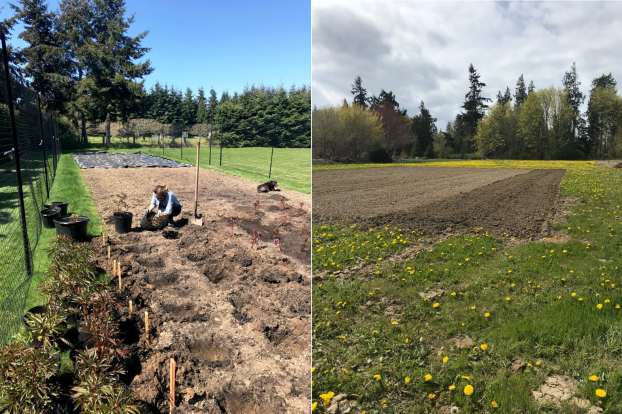
April (left) planting peonies at her new property in Agnew, Wash.; the “bonus” farm land at nearby Gray Wolf View Farm, where the owner has invited April to expand her operations (right).
April shares this on her “about” page:
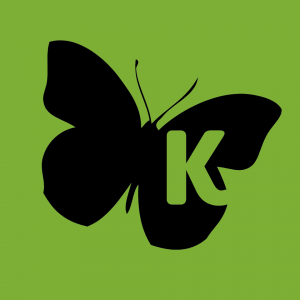 We are a small organic flower farm and full service studio located in Agnew, Washington on the beautiful Northern Olympic Peninsula.
We are a small organic flower farm and full service studio located in Agnew, Washington on the beautiful Northern Olympic Peninsula.
I started Kamama Flowers in 2014 from a few urban gardens in Portland, Oregon where we ran a flower CSA, delivering arrangements to local homes and businesses.
In 2017 we moved the farm to Agnew so we could spread out, grow more flowers and be in the peaceful, sunny country-side. In 2018 we are expanding to a surprise retail space!
Moving from Portland and starting their life in Sequim, has been a lot of hard work with new ground, a new community and a new climate. One of the first things April and Sean did was cover 1,000 square feet in black plastic in order to kill the meadow mix and prep the site for growing organic flowers.
She describes it as “a lovely, flat, south-facing acre with minimal rocks.” She feels lucky that the former dairy farm land is in such good shape. Summer passed and last fall they tilled the soil to about 6 inches. Soil test results revealed that the sandy clay loam needed to be amended with lime, which has already been incorporated before planting dozens of peonies.
Since moving mid-summer 2017, April enjoyed a lovely wedding season with 4 boutique weddings in gorgeous outdoor settings where Kamama’s organic flowers graced beautiful brides.
She writes this about the name Kamama Flowers: Kamama is the Cherokee word for butterfly. The name is an homage to the strong women in my life; my Grandma, Sara, and my mom, Karen, the women who showed me the peace in the garden.
Thank you so much for joining me today and hearing April’s story of a new chapter that incorporates flower farming, floral design and retail flowers — it’s a vertical floral business model that is proving to be more relevant than ever before.
Find and follow Kamama Flowers at these social places:
 And I’m so happy to tell you that the Slow Flowers Podcast has been downloaded more than 312,000 times by listeners like you. Thank you for downloading, listening, commenting and sharing — it means so much.
And I’m so happy to tell you that the Slow Flowers Podcast has been downloaded more than 312,000 times by listeners like you. Thank you for downloading, listening, commenting and sharing — it means so much.
As the Slow Flowers Movement gains more supporters and more passionate participants who believe in the importance of the American cut flower industry, the momentum is contagious.
I know you feel it, too. I value your support and invite you to show your thanks and with a donation to support my ongoing advocacy, education and outreach activities. You can find the donate button in the right column.
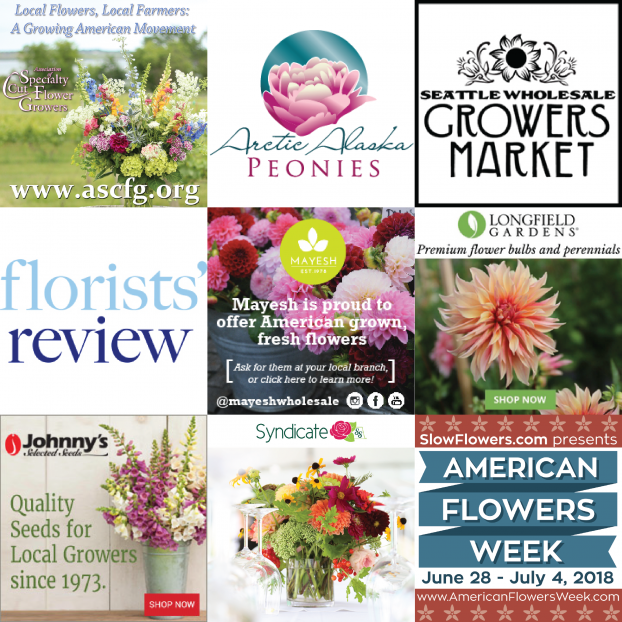
Thank you to our sponsors who have supported Slow Flowers and all of our programs including this podcast, American Flowers Week, the Slowflowers.com online directory to American grown flowers, as well as our new channels, Slow Flowers Journal and the 2018
Our lead Sponsor, Florists’ Review magazine. I’m delighted to serve as Contributing Editor for Slow Flowers Journal, found in the pages of Florists’ Review. It’s the leading trade magazine in the floral industry and the only independent periodical for the retail, wholesale and supplier market. Take advantage of the special subscription offer for members of the Slow Flowers Community.
Arctic Alaska Peonies, a cooperative of passionate family farms in the heart of Alaska providing bigger, better peony flowers during the months of July and August. Visit them today at arcticalaskapeonies.com.
Seattle Wholesale Growers Market, a farmer-owned cooperative committed to providing the very best the Pacific Northwest has to offer in cut flowers, foliage and plants. The Growers Market’s mission is to foster a vibrant marketplace that sustains local flower farms and provides top-quality products and service to the local floral industry. Find them at seattlewholesalegrowersmarket.com
Longfield Gardens provides home gardeners with high quality flower bulbs and perennials. Their online store offers plants for every region and every season, from tulips and daffodils to dahlias, caladiums and amaryllis. Visit them at longfield-gardens.com.
Syndicate Sales, an American manufacturer of vases and accessories for the professional florist. Look for the American Flag Icon to find Syndicate’s USA-made products and join the Syndicate Stars loyalty program at syndicatesales.com.
Johnny’s Selected Seeds, an employee-owned company that provides our industry the best flower, herb and vegetable seeds — supplied to farms large and small and even backyard cutting gardens like mine. Check them out at johnnysseeds.com.
Association of Specialty Cut Flower Growers. Formed in 1988, ASCFG was created to educate, unite, and support commercial cut flower growers. It mission is to help growers produce high-quality floral material, and to foster and promote the local availability of that product. Learn more at ascfg.org.
Mayesh Wholesale Florist. Family-owned since 1978, Mayesh is the premier wedding and event supplier in the U.S. and we’re thrilled to partner with Mayesh to promote local and domestic flowers, which they source from farms large and small around the U.S. Learn more at mayesh.com.
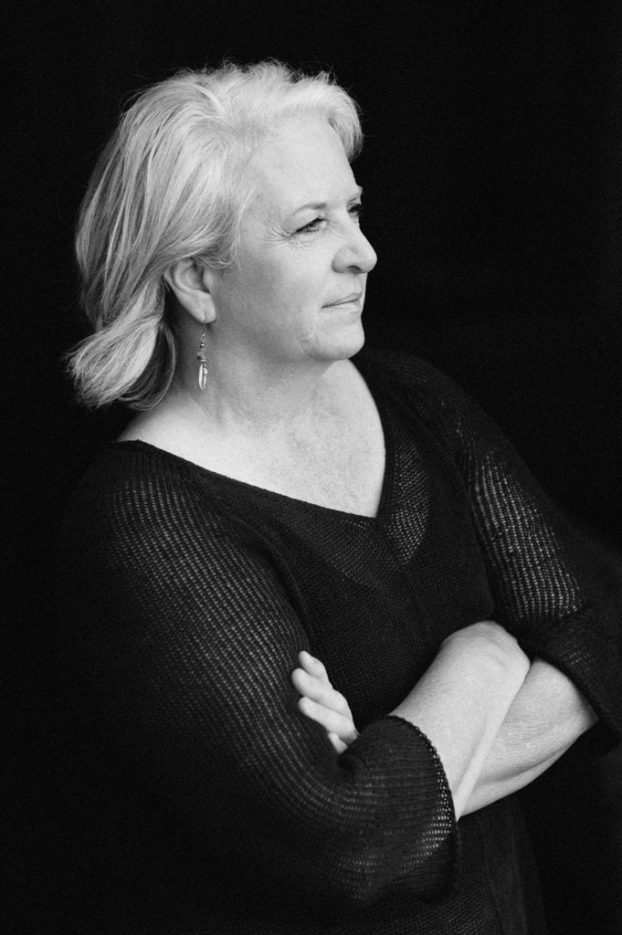 I’m Debra Prinzing, host and producer of the Slow Flowers Podcast. Next week, you’re invited to join me in putting more American grown flowers on the table, one vase at a time. And If you like what you hear, please consider logging onto Itunes and posting a listener review.
I’m Debra Prinzing, host and producer of the Slow Flowers Podcast. Next week, you’re invited to join me in putting more American grown flowers on the table, one vase at a time. And If you like what you hear, please consider logging onto Itunes and posting a listener review.
The content and opinions expressed here are either mine alone or those of my guests alone, independent of any podcast sponsor or other person, company or organization.
The Slow Flowers Podcast is engineered and edited by Andrew Brenlan. Learn more about his work at soundbodymovement.com.
Music Credits:









